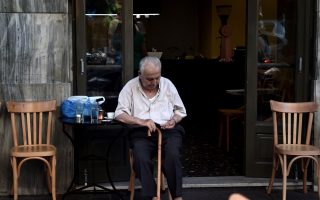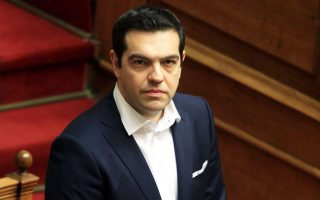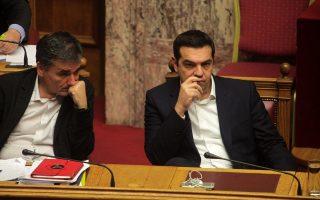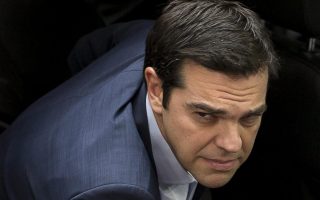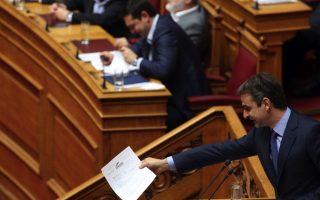Engaging democracy
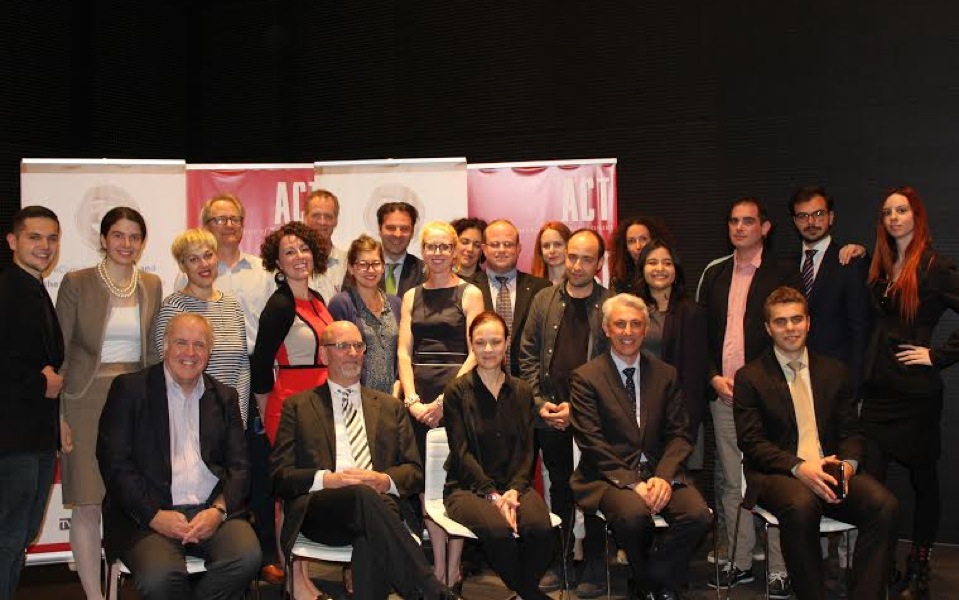
These are perilous times for democracy. In Greece, despite two national elections and one referendum in less than nine months in 2015, nearly half the electorate shunned the ballot box. Elsewhere in Europe, the 50 percent threshold was barely passed in parliamentary elections last year in Portugal and in Spain, where the outcomes were far from decisive.
Last year was a year of anti-establishment candidates, fringe parties, and cynical tactical voting, from Trump to Tsipras, from the Danish People's Party to Podemos, and from 49 percent to 58 percent in the two rounds of voting in the French regional elections. Elsewhere, there were frequent accusations of backsliding, in transitional regimes as in certain newer European Union member-states. On Europe’s doorstep, the hope of the Arab Spring has given way to the rise of the Islamic State and the horrors of the Syrian refugee crisis. Closer to home, we have been told that in the best-case scenario a majority of millennials are merely ambivalent about democracy.
However, despite the gloom, we continue to witness inspiring innovation, as democrats experiment with different sorts of direct and participatory democracy, with novel technologies and new networks, with new research and methodologies, with a renewed sense that democracy can be reworked, faith in the system rekindled, disillusion dispelled.
How does one explain this state of affairs? Is democracy inherently flawed? Must we resign ourselves to the view of self-styled civic hacker Joshua Tauberer, who has claimed “if there was an idea that could ‘fix’ democracy, it would have been thought up already?”
Or is it possible simply that our fellow citizens do not sufficiently understand and appreciate the nuts and bolts of democratic governance, be it local, national or global, direct or representative, thin or thick? What does democracy look like? How does it work? What more can be done to encourage sustainable participation? Are conditions ripe in fact for democratic renewal?
This past April 18, the Dukakis Center, which I direct, convened a diverse group of scholars, practitioners and public servants in Thessaloniki to examine some of the practical dimensions of, and remedies to, contemporary political disengagement. Their responses were the centerpiece of the Center’s annual Festival of Civic and Urban Culture, which took place from April 11-20, 2016.
The conference consisted of a series of round-table sessions featuring distinguished scholars and experienced practitioners, who considered what is being done, in Greece and abroad, to encourage engagement, particularly among younger citizens, in municipalities, in schools, in civil society and in the private sector. Conference participants discussed such topics as new technologies, approaches to direct democracy, public-private partnerships, and corporate citizenship.
For the event, the Dukakis Center commissioned the Public Opinion Research Unit at the University of Macedonia Research Institute, the local co-host of the conference, to conduct a national poll of voting behavior in Greece in 2015, specifically to understand better voter abstention in two national elections and one national referendum. Under the direction of Nikos Marantzidis, the research team also convened focus group sessions with younger voters to explore further this question of voter absenteeism. (To provide counterpoint, the Dukakis Center also commissioned a local nonprofit creative agency, AddArt, to conduct a master class in stop motion animation, in which a group of young voters produced brief animated get-out-the-vote campaigns.)
The poll did not produce any major surprises; young Greeks are turned off by politics in ever larger numbers. Rather, Professor Marantzidis’s findings paralleled data presented from research undertaken among younger American voters by Richard Fox of Loyola Marymount University in Los Angeles, according to which very few young people think seriously any more about running for public office or launching a career as a politician.
Happily the situation as presented by the practitioners presenting at the conference was not nearly as bleak. The impressive Lina Liakou and Harris Boskis, of the municipalities of Thessaloniki and Athens, shared the message that public agencies can no longer be expected to have all the answers to problems in the public domain. Counterintuitively, perhaps, their initiatives to engage with the residents of their cities have actually produced encouraging results, such as the synAthina project in Athens.
Likewise, a research project under way at the Dukakis Center suggests that young voters who study in foreign countries often use the experience to strengthen their attachment to and support of the democratic regimes in their home countries, in the Balkans and in North America.
Even where turnout remains problematic, as in Philadelphia in the US, grassroots efforts such as the Next Stop Democracy project overseen by Lansie Sylvia of the creative agency Here’s My Chance have yielded encouraging outcomes. Sylvia’s metrics show that traditional non-voters were among those most positively impacted by her urban campaign.
Meanwhile, the younger participants at the conference charmed their auditors with their enthusiasm and conviction. Mayara Soares, a Brazilian national studying international affairs at Sciences Po in Paris, shared her experience as a pro-democracy activist in Sao Paolo, where she and her peers compelled the state governor to sign legislation pledging to improve the condition of classrooms in public schools. A member of Voxe.org in Paris, one of several 20-somethings pitching the merits of democracy to their peers throughout Europe, Soares now coordinates a project which seeks to elucidate the campaign platforms of candidates wherever in the world there are competitive elections.
“What needs reforming more, the attitudes of citizens or the political system itself?” asked keynote speaker Gerry Stoker, of the universities of Southampton and Canberra, echoing a theme debated publicly at the Dukakis Center as long ago as 2011 at another international conference. The latter, concluded Professor Stoker, whose book “Why Politics Matters” was one of the inspirations behind the 2016 conference.
Judging from the outcomes of the conference we hosted, there is no lack of support for the effort.
* David Wisner is professor of international relations and executive director of the Michael and Kitty Dukakis Center for Public and Humanitarian Service at the American College of Thessaloniki. The views presented here are his and not necessarily those of ACT or the Dukakis Center.
